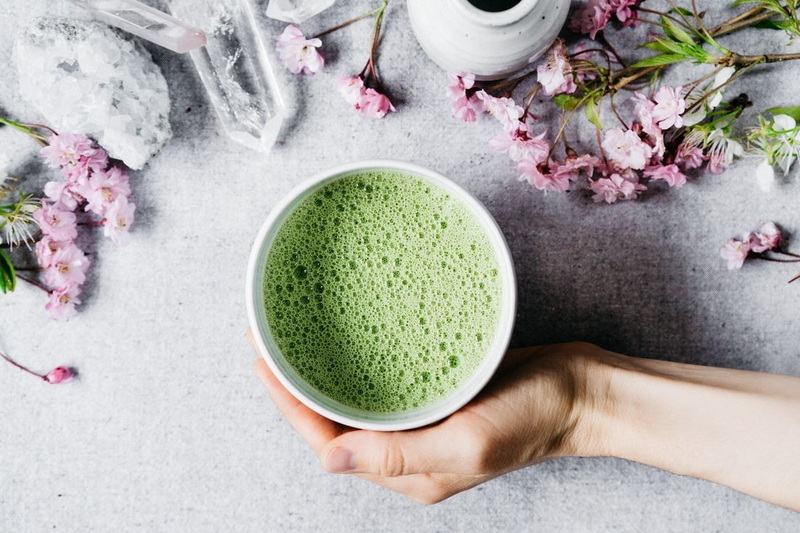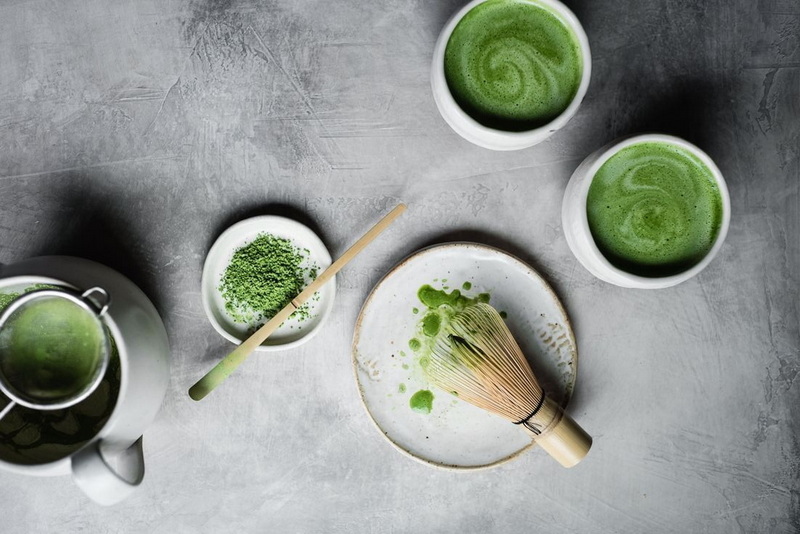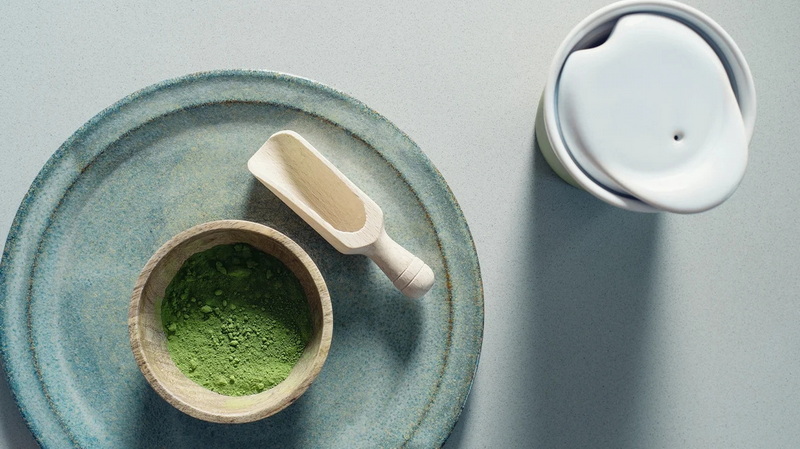Content Menu
● Understanding Green Tea and Its Extract
>> Caffeine Content in Green Tea
● Caffeine in Different Green Tea Extract Brands
● Health Benefits Associated with Caffeine in Green Tea Extract
● Potential Risks of High Caffeine Intake
● The Role of Catechins in Green Tea Extract
>> Health Benefits of Catechins
● How Much Green Tea Extract Should You Take?
>> Factors Influencing Dosage
● Comparing Green Tea Extract with Other Caffeinated Beverages
● Conclusion
● FAQ
>> 1. What is the average amount of caffeine in a cup of brewed green tea?
>> 2. How does the caffeine content in green tea extract compare to coffee?
>> 3. Can I consume green tea extract if I am sensitive to caffeine?
>> 4. Is it safe to take multiple servings of green tea extract daily?
>> 5. What are some health benefits associated with green tea extract?
● Citations:
Green tea extract is a popular supplement known for its numerous health benefits, including weight management, improved metabolism, and antioxidant properties. One of the common questions among consumers is: How much caffeine is actually present in green tea extract? This article will explore the caffeine content in green tea extract, its effects on health, and provide insights into its consumption.

Understanding Green Tea and Its Extract
Green tea comes from the leaves of the *Camellia sinensis* plant and is renowned for its high concentration of antioxidants, particularly catechins. Green tea extract is a concentrated form of green tea that retains many of its beneficial compounds but in higher concentrations.
Caffeine Content in Green Tea
The caffeine content in green tea varies significantly based on several factors:
- Type of Green Tea: Different varieties of green tea contain different amounts of caffeine.
- Preparation Method: How the tea is brewed (temperature and time) can affect caffeine extraction.
- Form of Green Tea: Loose leaf, bagged, or powdered forms (like matcha) have different caffeine levels.
On average, an 8-ounce cup of brewed green tea contains approximately 30 to 50 mg of caffeine. However, when it comes to green tea extract supplements, the caffeine content can range widely:
- Some supplements may contain as little as 2 mg to as much as 200 mg or more per serving, depending on the brand and formulation.
Caffeine in Different Green Tea Extract Brands
Here are some examples of caffeine content in various green tea extract supplements:
- NOW Foods: 400 mg of green tea extract with up to 32 mg of caffeine per serving.
- Life Extension Mega Green Tea Extract: 725 mg with approximately 25 mg of caffeine.
- Jarrow Formulas: 500 mg with about 40 mg of caffeine per serving.
The variability underscores the importance of checking labels to understand how much caffeine you are consuming.
Health Benefits Associated with Caffeine in Green Tea Extract
Caffeine plays a significant role in the health benefits attributed to green tea extract. Some benefits include:
- Enhanced Metabolism: Caffeine can boost metabolic rate and promote fat burning.
- Increased Energy Levels: It acts as a stimulant that can enhance physical performance and reduce fatigue.
- Improved Cognitive Function: The combination of caffeine and L-theanine (an amino acid found in green tea) can improve focus and alertness without the jittery effects often associated with other caffeinated beverages.
Potential Risks of High Caffeine Intake
While moderate consumption of caffeine is generally considered safe for most adults (up to 400 mg per day), excessive intake can lead to several adverse effects:
- Anxiety
- Insomnia
- Digestive issues
- Heart palpitations
- Increased blood pressure
It's crucial for individuals sensitive to caffeine or those with underlying health conditions to monitor their intake carefully.
The Role of Catechins in Green Tea Extract
In addition to caffeine, green tea extract is rich in catechins, particularly epigallocatechin gallate (EGCG), which contributes significantly to its health benefits. Catechins are powerful antioxidants that help combat oxidative stress and inflammation.
Health Benefits of Catechins
- Weight Loss Support: Catechins may enhance fat oxidation and improve metabolic rates, making them beneficial for weight management.
- Heart Health: Regular consumption has been linked to lower cholesterol levels and improved cardiovascular health.
- Cancer Prevention: Some studies suggest that catechins may inhibit cancer cell growth by reducing oxidative stress.

How Much Green Tea Extract Should You Take?
The recommended dosage for green tea extract varies depending on individual health goals and product formulations. Generally, a dose between 250–500 mg per day is considered safe for most people. This amount can be obtained from approximately 3–5 cups of brewed green tea.
Factors Influencing Dosage
1. Health Goals: Those using it for weight loss or metabolic support may require higher doses.
2. Caffeine Sensitivity: Individuals sensitive to caffeine should opt for lower doses or decaffeinated versions.
3. Formulation Variability: Different brands may have varying concentrations of active compounds; always check product labels.
Comparing Green Tea Extract with Other Caffeinated Beverages
To better understand how green tea extract fits into your diet, it's helpful to compare its caffeine content with other common caffeinated beverages:
| Beverage | Caffeine Content (mg per 8 oz) |
| Brewed Coffee | 95 - 165 |
| Black Tea | 40 - 70 |
| Green Tea | 30 - 50 |
| Energy Drinks | 80 - 100 |
As shown in the table above, green tea contains less caffeine than coffee and energy drinks but still provides a moderate amount that can enhance alertness without causing excessive jitters.
Conclusion
In summary, the amount of caffeine in green tea extract varies widely depending on the brand and formulation. On average, it can range from as low as 2 mg to over 200 mg per serving. While moderate consumption can offer various health benefits due to both caffeine and catechins, it's essential to be mindful of your total daily intake to avoid potential side effects.

FAQ
1. What is the average amount of caffeine in a cup of brewed green tea?
The average amount of caffeine in an 8-ounce cup of brewed green tea is approximately 30 to 50 mg.
2. How does the caffeine content in green tea extract compare to coffee?
Green tea generally contains less caffeine than coffee. A standard cup of brewed coffee contains about 95 to 165 mg per 8-ounce serving.
3. Can I consume green tea extract if I am sensitive to caffeine?
Yes, but it's advisable to choose decaffeinated versions or those with lower caffeine content and consult with a healthcare professional before starting any new supplement.
4. Is it safe to take multiple servings of green tea extract daily?
Moderate consumption is generally safe; however, exceeding recommended dosages can lead to side effects such as liver toxicity or gastrointestinal issues. Always adhere to manufacturer guidelines.
5. What are some health benefits associated with green tea extract?
Health benefits include improved metabolism, enhanced energy levels, better cognitive function, and antioxidant properties that may protect against various diseases.
Citations:
[1] https://www.livestrong.com/article/186702-how-much-caffeine-is-in-green-tea-extract/
[2] https://health.clevelandclinic.org/green-tea-extract-a-better-way-to-boost-energy-or-not
[3] https://www.reddit.com/r/tea/comments/157das5/how_much_caffeine_in_green_tea_leaves/
[4] https://pmc.ncbi.nlm.nih.gov/articles/PMC2855614/
[5] https://pubmed.ncbi.nlm.nih.gov/21538851/
[6] https://medsafe.govt.nz/profs/PUArticles/Complementary%20Medicine%20Corner%20-%20Safety%20of%20Green%20Tea%20extracts.htm
[7] https://www.healthline.com/nutrition/10-benefits-of-green-tea-extract
[8] https://sg.iherb.com/pr/life-extension-mega-green-tea-extract-lightly-caffeinated-100-vegetarian-capsules/7249
[9] https://www.medicalnewstoday.com/articles/269538
[10] https://pubmed.ncbi.nlm.nih.gov/29580974/
[11] https://www.medicalnewstoday.com/articles/269538
[12] https://www.healthline.com/nutrition/caffeine-in-green-tea
[13] https://www.researchgate.net/figure/Levels-of-catechins-and-caffeine-in-tea-bags-extract-and-ready-to-drink-green-tea_tbl1_262473749
[14] https://www.caffeineinformer.com/caffeine-content/green-tea-extract
[15] https://www.researchgate.net/figure/Polyphenol-and-caffeine-content-of-the-green-tea-extracts-as-specified-by-the_tbl1_26891800
[16] https://www.webmd.com/vitamins/ai/ingredientmono-960/green-tea
[17] https://pubmed.ncbi.nlm.nih.gov/16506807/
[18] https://www.urmc.rochester.edu/encyclopedia/content?contenttypeid=19&contentid=greenteaextract
[19] https://www.mountsinai.org/health-library/herb/green-tea
[20] https://pmc.ncbi.nlm.nih.gov/articles/PMC7009618/
[21] https://health.clevelandclinic.org/green-tea-extract-a-better-way-to-boost-energy-or-not
[22] https://www.vumc.org/poison-control/toxicology-question-week/march-12-2021-what-are-adverse-effects-green-tea-extract
[23] https://www.webmd.com/drugs/2/drug-76714/green-tea-leaf-extract-oral/details
[24] https://www.healthline.com/nutrition/green-tea-and-weight-loss
[25] https://www.health.com/nutrition/benefits-green-tea
[26] https://pmc.ncbi.nlm.nih.gov/articles/PMC2855614/
[27] https://www.reddit.com/r/chemistry/comments/3gt1zo/how_much_caffeine_in_green_tea_extract/
[28] https://pmc.ncbi.nlm.nih.gov/articles/PMC3746392/
[29] https://www.webmd.com/diet/health-benefits-green-tea






























